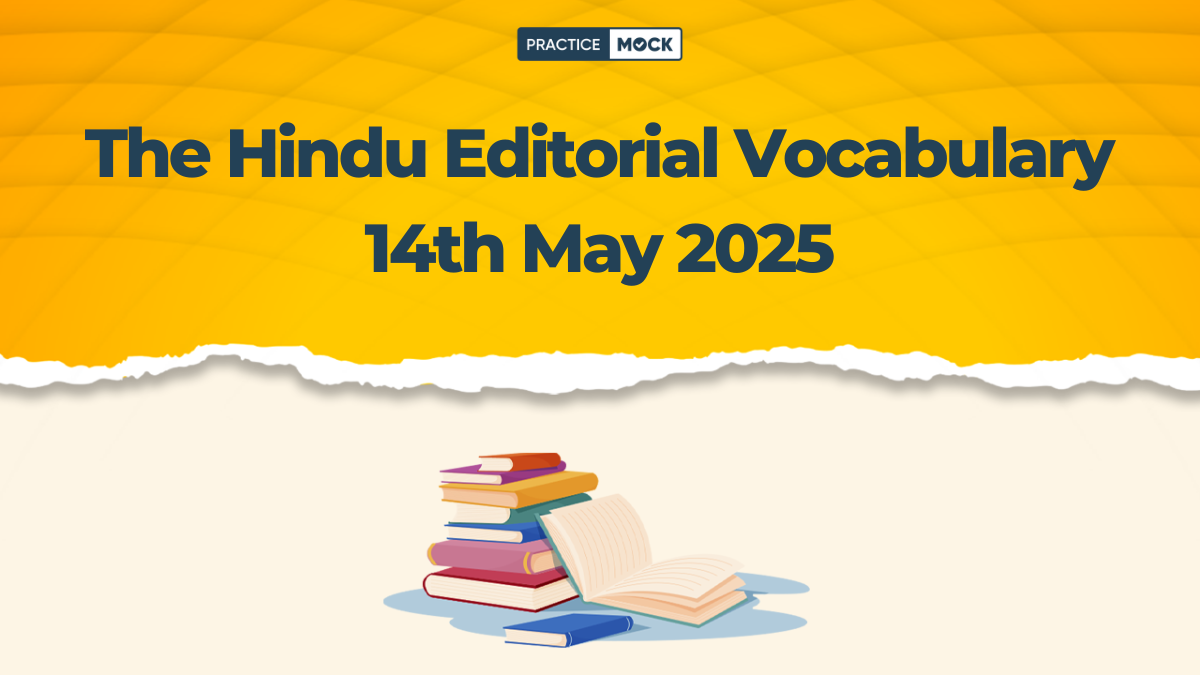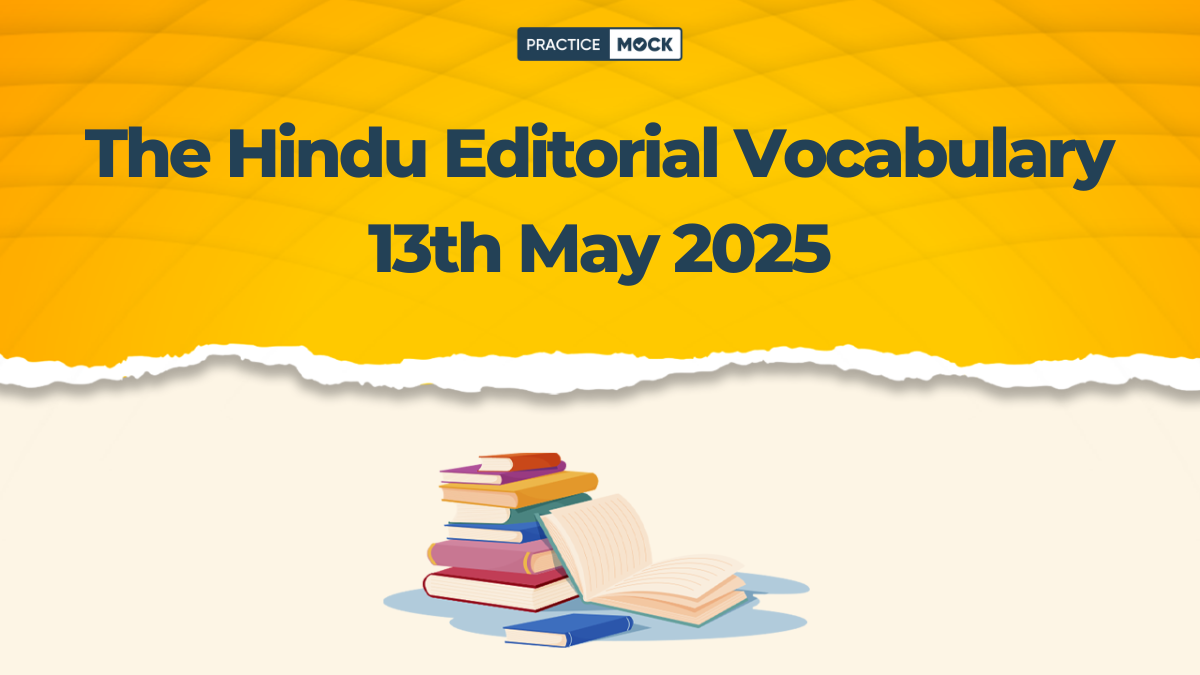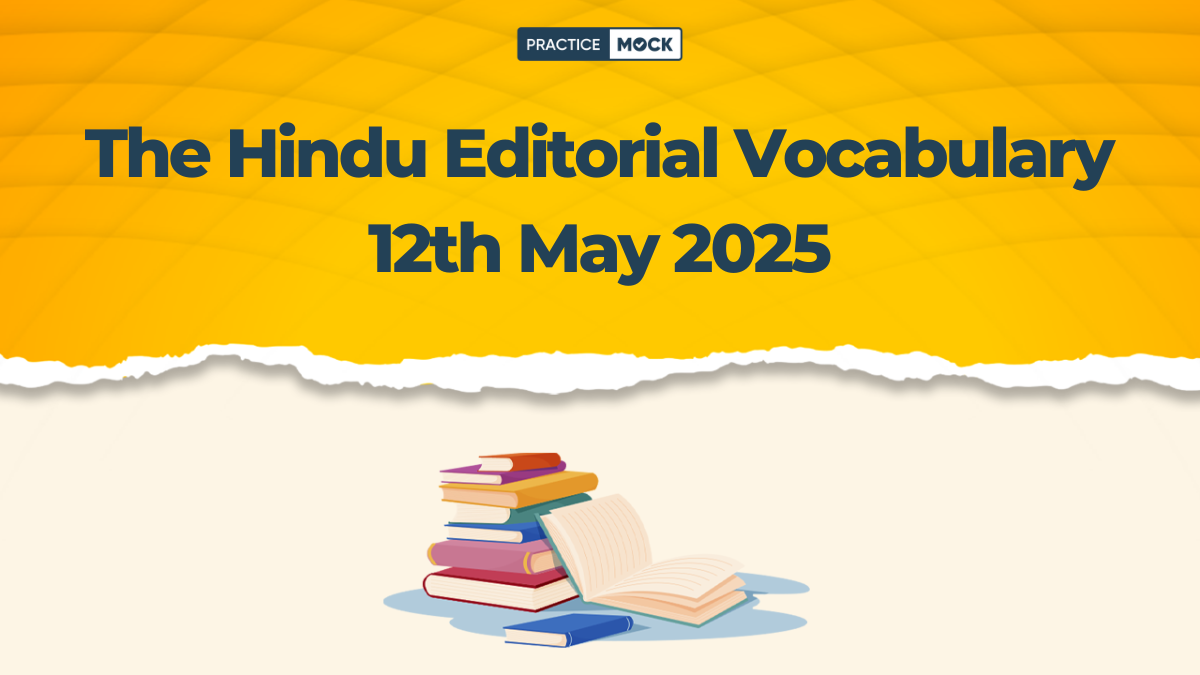The Hindu Editorial Vocabulary– February 22, 2024; Day 558


| Difficult Word/ Phrase | Contextual Sense |
| Archaic | Of or belonging to an ancient period in history |
| Patriarchal | Relating to a patriarchy, or to the idea that men are more important than women |
| Unconstitutional | Not allowed by the constitution (= set of rules for government) of a country or organization |
| Coarse | Rude and offensive |
| Undermines | To make someone less confident, less powerful, or less likely to succeed, or to make something weaker, often gradually |
| Dignity | Calm, serious, and controlled behaviour that makes people respect you |
| Compensation | Money that is paid to someone in exchange for something that has been lost or damaged or for some problem |
| Appealed | A request to the public for money, information, or help |
| Dismissal | A decision that someone or something is not important |
| Parity | Equality, esp. of pay or position |
| Barriers | Anything that prevents people from being together or understanding each other |
| Disproportionate | Too great or too small when compared to something else |
| Abide | To live or stay somewhere |
| Disentitlement | To deprive of title, claim, or right |
| Enabler | Something or someone that makes it possible for a particular thing to happen or be done |
Ending discrimination: On the Union of India and Others vs Ex. Lt. Selina John case
Workplaces must ensure fair treatment of woman employees
The Supreme Court of India has come out heavily against another archaic (of or belonging to an ancient period in history) idea with patriarchal (relating to a patriarchy, or to the idea that men are more important than women) overtones by observing that rules which penalise women employees for getting married are unconstitutional (not allowed by the constitution (= set of rules for government) of a country or organization). “Terminating employment because the woman has got married is a coarse (rude and offensive) case of gender discrimination and inequality. Acceptance of such [a] patriarchal rule undermines (to make someone less confident, less powerful, or less likely to succeed, or to make something weaker, often gradually) human dignity (calm, serious, and controlled behaviour that makes people respect you), right to non-discrimination and fair treatment.” The observations were part of an order which upheld the rights of Selina John, a former lieutenant and Permanent Commissioner Officer in the Military Nursing Service, who was discharged from service in 1988 for getting married. A Bench headed by Justice Sanjiv Khanna directed the Union Government to pay Ms. John ₹60 lakh in compensation (money that is paid to someone in exchange for something that has been lost or damaged or for some problem) within eight weeks. The government had appealed (a request to the public for money, information, or help) in the top court against a decision of the Lucknow Bench of the Armed Forces Tribunal which had ruled in her favour in 2016. Pointing out that her dismissal (a decision that someone or something is not important) was “wrong and illegal”, the Court noted that the rule against marriage was applicable only to women nursing officers. Women have been fighting a long and uphill battle for gender parity (equality, esp. of pay or position) in the Army — they were granted permanent commission after judgments in 2020 and 2021. Words to the effect that the Indian Army is encouraging more women to join the forces have to be backed by deeds.
It is not that the civilian space is much better off, and women are often asked uncomfortable personal questions at job interviews. They are quizzed about future plans on marriage and motherhood. If labour participation of women in the workforce has to increase — in the latest Periodic Labour Force data (October-December 2023), India’s is at an abysmal 19.9% for women of all ages — then barriers (anything that prevents people from being together or understanding each other) in education, employment, and opportunities, not to talk of bullying mindsets, have to be broken down. It is a fact that many girls, especially among the poor, have to drop out of school for various reasons, from economic to lack of proper toilets. The UN’s Gender Snapshot 2023 had provided a grim picture of where the world is on gender parity, pointing out that if course correction measures are not taken, the next generation of women will still spend a disproportionate (too great or too small when compared to something else) amount of time on housework and duties compared to men, and stay off leadership roles. The schemes routinely announced by the government for girls and women will mean little on the ground if they have to abide (to live or stay somewhere) by restrictive social and cultural norms. The Court’s words that rules making marriage of women employees and their domestic involvement a ground for disentitlement (to deprive of title, claim, or right) are unconstitutional should be heard by all organisations so that the workplace becomes an enabler (something or someone that makes it possible for a particular thing to happen or be done), and not a hurdle.
Unlock the power of words, one step further! Download the Lists of Word-Meanings of Previous Months here.
Recent Posts
RRB NTPC Application Status 2025 Out, Check Your Application Status
The RRB has released the RRB NTPC Application Status 2025. In this blog, we have…
How to Prepare Quant for IBPS PO 2025 Prelims Exam, Check Strategy to Score 30+ Marks
Here we are providing the strategy to prepare the Quant section for the prelims exam.…
IBPS PO Eligibility Criteria 2025, Check Bank PO Age Limit and Educational Qualification
IBPS PO Eligibility Criteria highlights eligibility for the post of probationary officer at a public…
IBPS Clerk 2025 Notification in October, Check Exam Date
The IBPS Clerk Notification 2025 will be released on their official website. Candidates can check…
Medieval History of India PDF for SSC CGL, Download for Free
In this blog, we have provided the Medieval History of India PDF for SSC CGL.…
DI Expected Questions for RRB PO 2025, Check How to Solve It Easily?
In this article we are providing the 100 + DI Repeated Questions for RRB PO…


